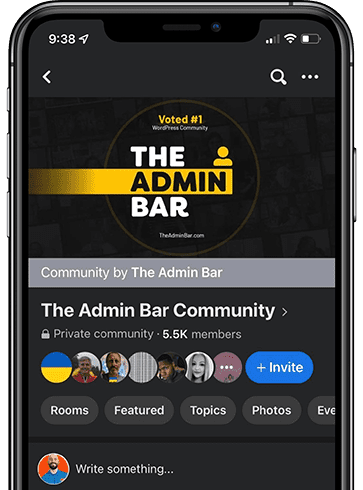Whether it’s explaining that doing SEO doesn’t provide overnight ranking success, or the necessity for WordPress website maintenance — clients (especially the non-technical ones) sometimes struggle to understand how these things actually work.
These things might sound like common knowledge to you, but for the average Joe, you might as well be speaking a foreign language.
Analogies are a great way to take some of these complex topics and explain them in a way that makes it easier to understand.
A well crafted analogy will help compare and contrast a system that’s universally understood with the complex information you’re presenting — and they can be used for almost any service you provide.
Having a handful of these at your fingertips will help make your sales meetings run smoother, your close rate higher, and ultimately make you the voice of reason in an otherwise confusing and complex world.
The sky’s the limit when it comes to crafting analogies to help your clients better understand you. This post is going to cover three of the most common ones that will help get you started.
With each analogy I’ll help break down how the analogy works and why it’s effective, which will help you craft your own analogies for the different products and services you offer.
WordPress Website Maintenance
If you’ve been around WordPress for any length of time, then you know first-hand that keeping your plugins up-to-date, the security tight, and everything in working order takes ongoing effort.
But for clients, it can be hard to understand why the, likely expensive, website you built them is going to require regular upkeep in perpetuity.
Luckily, analogies work great in this scenario because there are all kinds of things in the everyday world that require similar maintenance and when compared in that light won’t seem as odd.
The Analogy for Website Maintenance
When you drive a new car off the dealership lot, you’re driving a vehicle in peak form that’s been carefully built, inspected, and tested to ensure it will meet the highest standards possible.
But that doesn’t mean you don’t have to change the oil, add fuel, and rotate and replace your tires.
If you ignore these small maintenance items, you can end up with big problems down the road.
Websites work in a similar way… But instead of replacing fluids and turning wrenches, the software that powers your website requires updates for both functionality and security to ensure you don’t run into bigger problems in the future.
Some people will handle website maintenance on their own, but just like with your vehicle, some of these things require expertise, experience and tools that not everyone has.
Most of my clients don’t change the oil in their vehicles themselves, and for similar reasons, they don’t want to be responsible for the proper upkeep of their website either — so we can handle that for you.
Why the Car Analogy Works
Comparing website maintenance to car maintenance is a pretty easy one for most people to understand. Only truly irresponsible car owners would ignore oil changes and drive on a flat tire. They see the small costs of vehicle maintenance as something that’s well worth protecting the value and reliability of their transportation.
This is especially handy if you offer care or maintenance plans. By drawing this comparison, you’re helping your client understand they probably don’t really need to be “under the hood” working on the website. They are already used to paying someone to carry out maintenance on their vehicles, and this analogy makes hiring you for website maintenance seem like the logical next step.
Search Engine Optimization
SEO is a really tricky subject to explain to anyone unfamiliar with the subject.
Hell, even experts argue about how it really works.
Optimizing a website could include a wide variety of research, tasks, & strategies — none of which produce immediate results or come with any kind of guarantee.
Couple that with the fact that SEO work is often quite expensive, and it can be a hard sell to clients.
The key to crafting a useful analogy here is to compare it with other things that take time and sustained effort in order to achieve results.
The Analogy for SEO
If you are looking to lose a few pounds or get fit, you’d probably join a gym, right?
At the gym there are a variety of different workouts, machines, and programs all aimed at helping you achieve your results — and some might work better for you than others.
But one thing is certain — you don’t go to the gym once and wake up the next day 50 pounds lighter, or lifting twice what you did the day before.
To achieve these kinds of results it takes time and consistent effort.
SEO works in a similar way.
Like workout machines and nutrition programs, there are hundreds of ways to optimize your website — and what works best for someone else’s website might not work for yours.
No matter which strategies or tactics you use, results won’t happen overnight, and your success is reliant on your consistent effort for improvement.
What might seem like a lot of small steps can add up to dramatic results over time.
However, with SEO you’re in a competition to be the most fit. This means you have to beat out the competition who are also working hard to claim the top spot in search results.
A good SEO provider is like a personal trainer that will analyze your current status, and help you develop a plan that will work best in your unique scenario. But unlike a personal trainer, we can do the work for you — so you don’t even have to break a sweat to achieve your goals.
Why the Gym Analogy Works
SEO might seem like a dark, mysterious art to those who aren’t familiar with it (and even to some of those who are!).
When you take it back to its most simple form, what you’re trying to explain is that there are many paths to success, and it takes time to see results.
The gym analogy is something everyone can relate to that draws a lot of similarities to SEO.
If you’re having this conversation in the context of selling SEO services, then the killer part of this analogy is where you contrast the fact that you can do the work for them (thanks to Nick Gulic for this one!).
This compare and contrast analogy is great for helping your client understand, and then showing them how your services offer an even better way to achieve the results than they expected.
Domains, Hosting, & Websites
Raise your hand if you’ve asked your client for their domain registrar credentials only to get their website login or hosting credentials instead. 🙋
Understanding the difference between a domain, a host, and a website can be confusing for people who see the whole thing as one package.
Couple that with the fact that many providers crossover between several of these services and your client can be turned into a pretzel pretty quickly.
This compact and simple analogy is especially helpful for clients who are embarking on their first journey to having an online presence by explaining to them the difference and need for each one of these items.
The Domain, Hosting, & Website Analogy
Building your online presence is similar to building a new house.
Your house sits on a plot of land, and that plot of land can be found by using its address.
In the online world, the house is your website, the land is your host, and the address is your domain. All three of these things work symbiotically.
In order for people to come visit you, you’ll have to have a piece of property and an address they can use in order to find you.
Why the New House Analogy Works
Of the three examples in this article, this one is by far the shortest — and it’s okay if your analogies are straight and to the point (in fact, it’s often better!).
This analogy uses the physical world in order to help navigate the digital one and gives your clients direct comparisons between several key elements that all need to work together.
You can continue this analogy and dive deeper by explaining how different parts of the website are similar to different parts of the house.
A blueprint is similar to a sitemap that will outline the layout of the house/website, different rooms in the house provide different functionality, and decorations are the design and aesthetic!
It’s okay to get creative!
TAB member Leanne Mitton wrote a great blog post using a similar analogy to help her clients understand how domains, hosting, & DNS work. Assets like this make great additions to your website!
Crafting Your Own Analogies
It’s a good idea to have analogies at the ready for all of your services. Taking the time to think of these now will make your future interactions with clients much easier — and clients will appreciate the vendor who is able to explain things in relevant terms.
In a bonus module in Nick Gulic’s course, Sell by Helping, he covers the steps you need to take in order to create your own analogies. With his permission, here’s a rough outline to get you started:
- Identify the point you’re trying to make
- Take it back to its basic, non-specific form
- Look for examples or systems that work in a similar way
- Compare and contrast
When comparing and contrasting, look for ways what you’re offering actually exceeds the expectations of what you’re comparing it to.
Like our gym analogy, the fact that you can do the work for them comes across as a huge advantage over the comparison to going to the gym. By setting the foundational understanding first, any highlights you can offer that go above your comparison stand out as major benefits.





